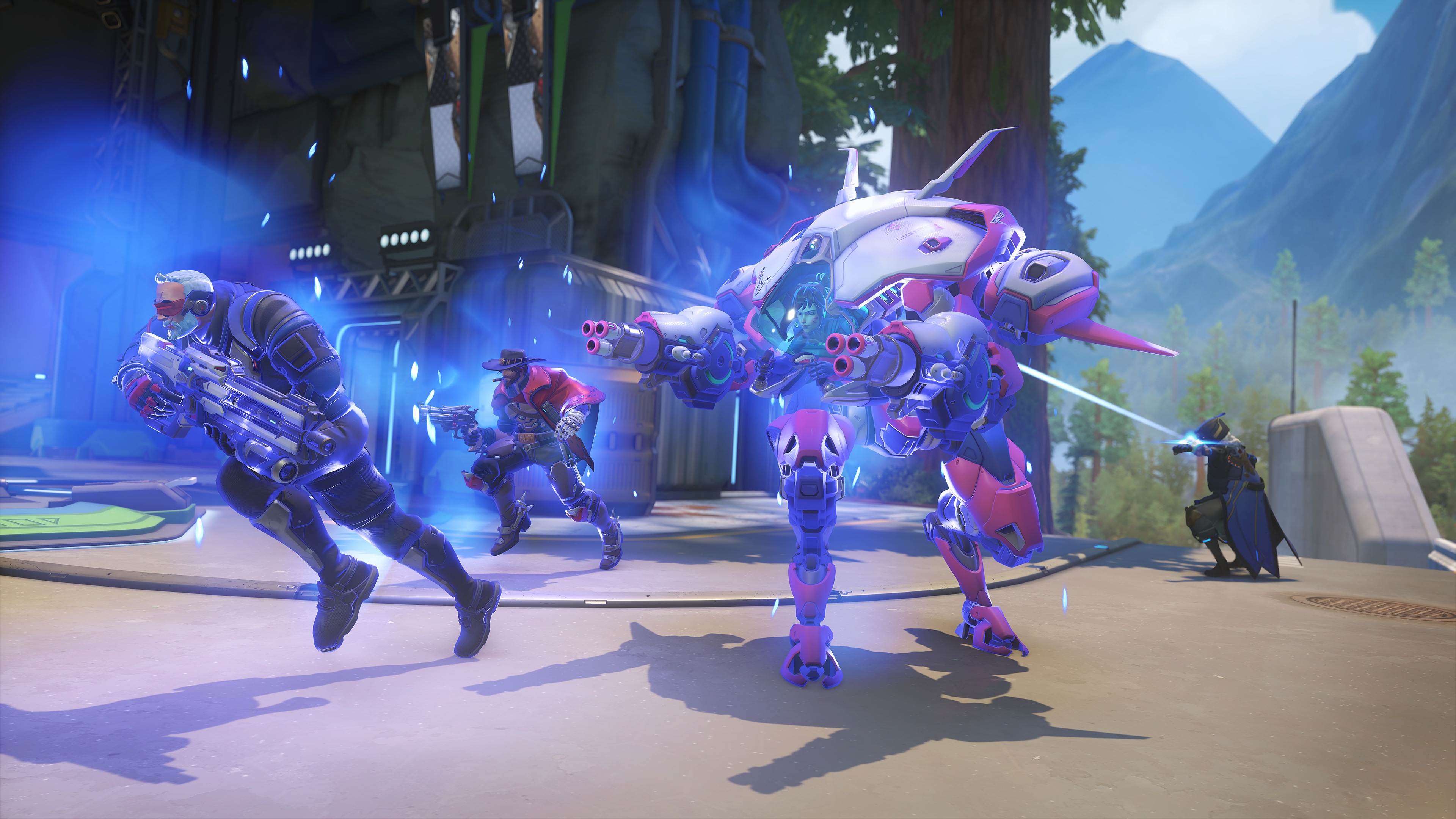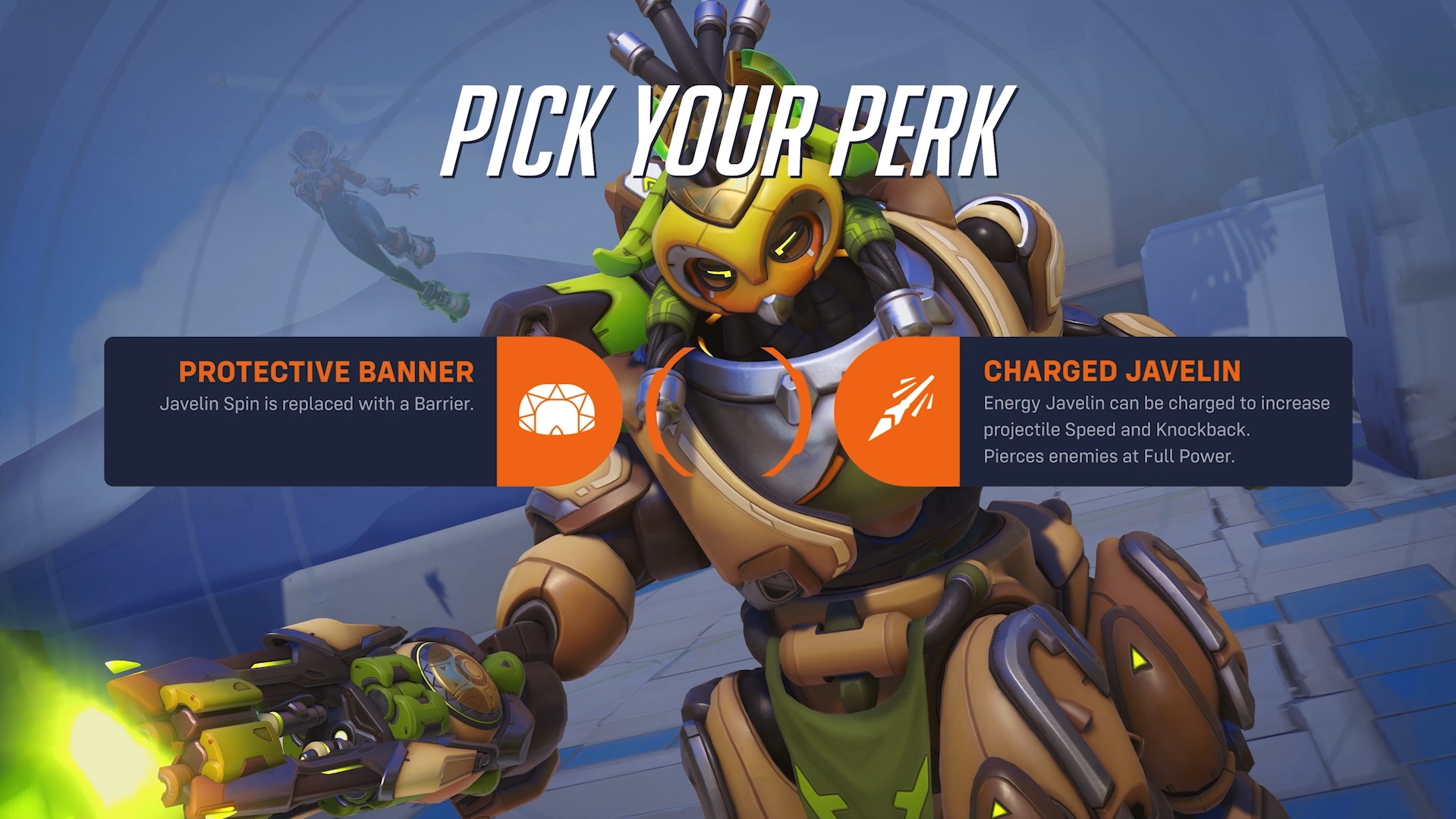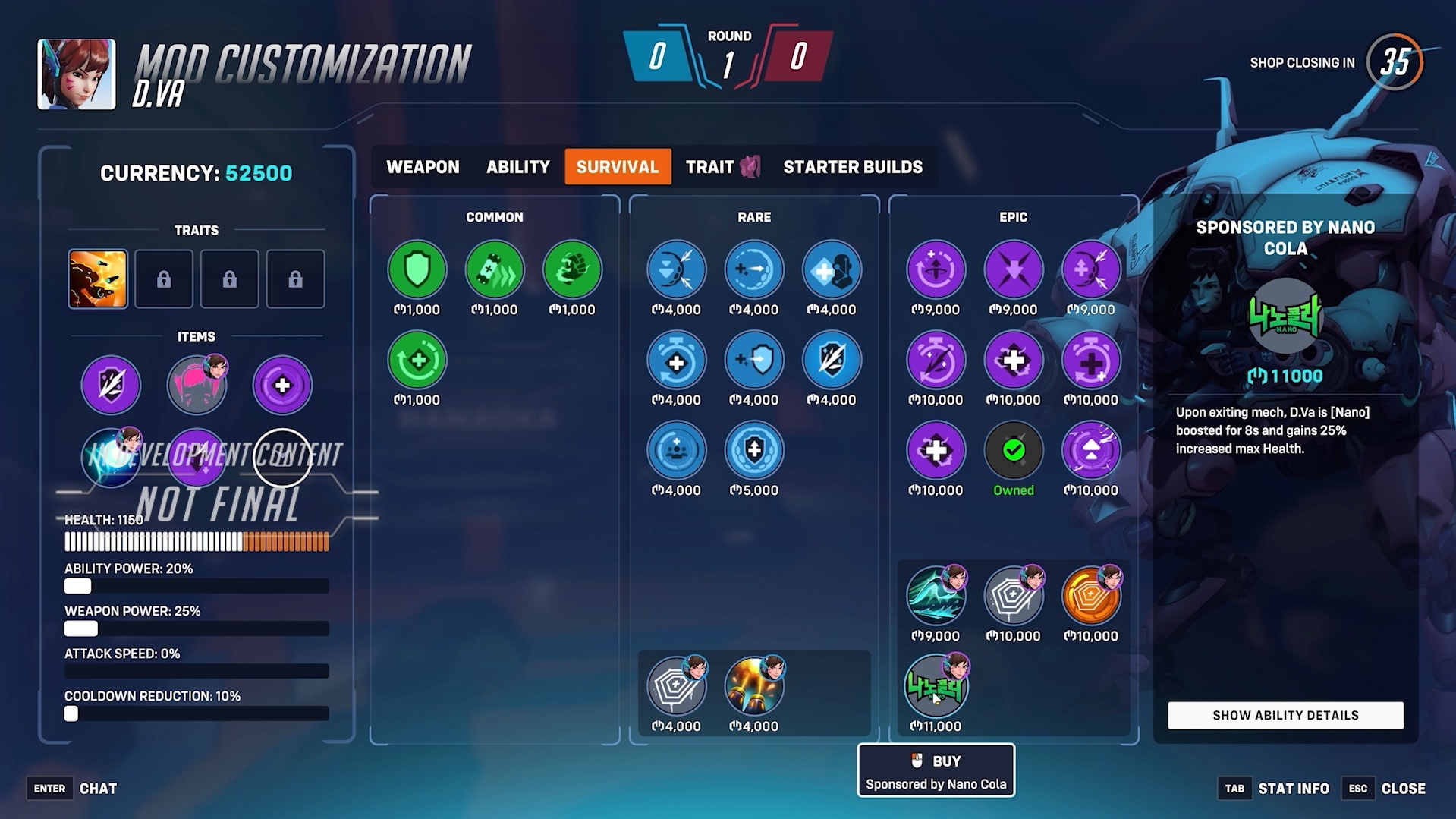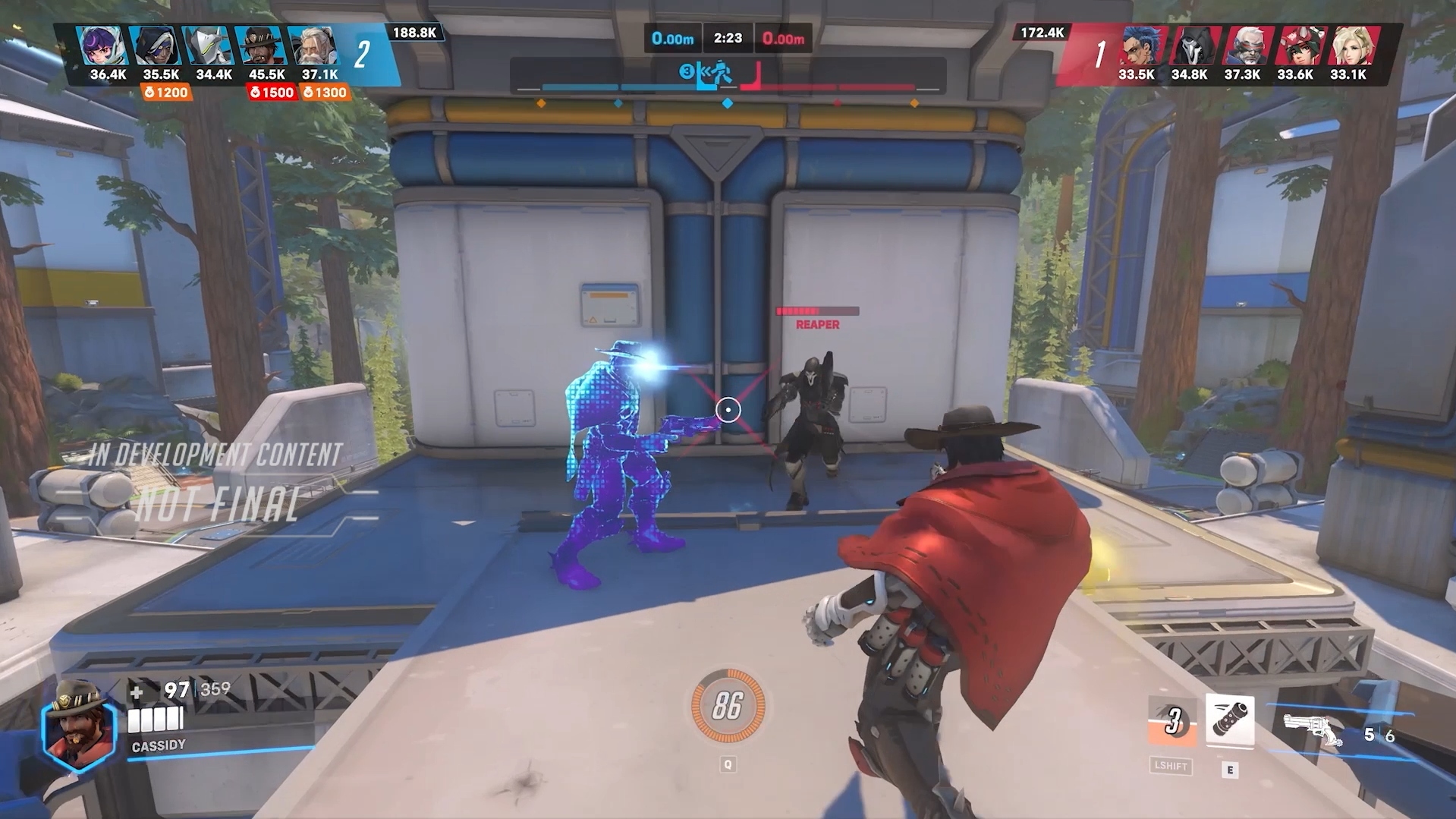"This is no longer about playing it safe": Overwatch 2 game director talks Marvel Rivals and betting big on season 15
Interview | "There is pressure on the Overwatch team… and we've been feeling it for a while"

The recent Overwatch 2 Spotlight could very well signal a new dawn for Blizzard's hero shooter, and that's exactly what it's in need of. Even before Marvel Rivals came on the scene to deliver some stiff competition, many have been calling for fresh changes to the Overwatch formula that will give players a better reason to keep returning. Now, with the reveal of what's to come, season 15 might deliver just that.
With Blizzard announcing game-changing perks, the Valorant-influenced Stadium mode, and more, we caught up with Overwatch 2 game director Aaron Keller to learn more about this bold new direction for the shooter. We discussed the studio's ramped-up efforts in dealing with criticism, justifying the "2" in Overwatch 2, and his vision of the franchise's future.
Under pressure

Note: this interview has been edited for clarity
GamesRadar+: You didn't hold Blizzcon, you didn't have that big information dump. People have been wondering – what's next? In that absence, Marvel Rivals has risen as a distinct competitor. Would you say the team has felt under pressure?
Aaron Keller: There is pressure on the Overwatch team, and a lot of it is internal. It's [asking] how do we make the best possible game that we can? And we've been feeling it for a while. You know, a lot of the things that we're announcing for seasons 15 and 16, like perks and Stadium, they're things that have been in development for Overwatch for quite some time. And I think what's driving that is, when we look at our game, we feel like it's either missing something or it hasn't evolved as much as it should have.
I look at what happens in a game of Overwatch, and a lot of times, when you get enough hours in the game, it almost feels like you can be going through the motions sometimes. What we want to be able to do is to inject a bit of freshness into the game, but not just for variety's sake. We want to increase the depth of play.
So with perks, there's some choices in there that we hope add depth to what it means to play any one of our heroes in the game, and we hope that it adds strategy over the course of a match, because now you're able to pick things that either augment what your hero is doing – or maybe you're going to use it to counter what somebody is doing on the other team. So for us, we want to take the game and evolve it to be bigger than what it is now, and to make those changes. To not just say, 'Hey, what's the best thing for Overwatch?' – the whole shooter and gaming landscape is changing over time, and how do we make something that appeals to those players?
Sign up to the GamesRadar+ Newsletter
Weekly digests, tales from the communities you love, and more
GR: Do you welcome competition within the genre?
AK: Oh, yeah. We're obviously in a new competitive landscape that I think, for Overwatch, we've never really been in before, to this extent where there's another game that's so similar to the one that we've created. There's actually something kind of exciting about this, for a few reasons. One of those is, it's really great to see a game kind of take a different direction with some of the things you've kind of looked at before. But also, we think it's a forcing function to our team – this is no longer about playing it safe. And I really think that seasons 15 and 16 are us not playing it safe. But really it's a forcing function to execute – and for a team of super passionate craftspeople, that's like music to their ears.
GR: Across the general public, there is a negative feeling around Overwatch. Do you agree there is that kind of sentiment? How have you navigated that, and led your team through that perception?
AK: Yeah. I mean, it almost feels like there's a few different versions of Overwatch in people's minds. It probably depends on how much you've kept up with the game and how into it you are, and I think that there's been a lot of people that have stuck with Overwatch over the years that have really noticed the care and attention that we've put into it since Overwatch 2 has shipped. Especially over the course of the last year, we've really focused on leveling up the game. I hope those people really see that with a lot of the things we've been sharing lately, and hopefully that can spread out to the broader community as well.
But [on the other hand] I understand, you know? I understand when people have that particular view. They thought that the game was going to be something that it didn't end up being – I get the criticism, but from the team's point of view, the only thing that we can do about that now is to make the best version of this game that we can.

GR: What's the future of Overwatch look like? Is the emphasis on that core gameplay experience now, or are there other avenues to expand on what Overwatch can be, especially with things like Stadium?
AK: Stadium is definitely an example of that, as it is going to sit next to our Quick Play and Competitive queues as its own queue. Stadium is not an event, but we've had these other game modes that have come around as events. They're limited time runs, they might come back, or they might exist in the arcade. We have a dedicated internal team who is continuously developing content for it. This is a new direction for the Overwatch team to do this. And this doesn't mean that we're going to be taking away resources from the main game. We feel like we're fully staffed there, and we have a lot of really big, exciting plans for what to do with the main game. Stadium is an additional thing that sits alongside that, and it’s also going to be getting seasonal updates and new features and systems as it moves forward.
GR: In the Spotlight, you said these updates are the biggest steps forward for Overwatch since it started in 2016, which would include Overwatch 2's launch. Is this a step towards filling that sequel number? Has the 2 at the end of your title been a complicated thing for the team and you to wrestle with?
AK: It has been a very difficult thing for the team to wrestle with, and I think a lot of it is because of what the game was supposed to be and the direction that it's gone in now.
At the same time, it is an identity for the game, and it is something that I'm not sure you can just drop at any time. Moving forward, we would like players to just think of Overwatch the game, the PvP shooter, as something independent of some of that baggage. We recognize not everybody can do that though. I think eventually there has to be a reckoning with something like that, and we really do have to face it head on. Right now, for seasons 15 and 16, it's not the moment for us.

GR: Perks and Stadium show a willingness to mess with the formula, which hasn't been the case in the past. Is that a little bit scary, or do you think it’s the right move to throw that out?
AK: At the end of the day, I think players want us to be taking risks. They want there to be new things for the game... if they're great, and it doesn't break a lot of things, right? And so there's a risk to doing this.
When I look back a bit at some of Overwatch’s development, we were a little adverse to taking risks, because we didn't want to cause harm to the game. But over time, that started to cause harm to the game itself because as it ages, it's no longer serving this need for people to be engaging with all of the heroes in the game in new, fun and exciting ways – which I think is a lot of the reason why you pick up playing a hero shooter in the first place. You gradually get into this sort of steady state where you want to get really competitive and all the metas develop, but that's kind of the fantasy there. So yeah, we do want to be hitting that now. We do want to be taking these swings. We're trying to do it in a responsible way. We're trying to make it polished. We're trying to make it balanced. But there will probably be some issues, and we'll address them.
GR: Lootboxes were coming back, but they were a controversial topic back in the day. What was the conversation like for bringing them back?
AK: We've been a critic of the way we've rewarded players in our game for a while, and, when we talk about bringing loot boxes back, the impetus for it was, is we didn't think we were serving our players – especially our free players – as well as we could have been. We would like to find ways for the game to let them know that they've been playing, and to reward them for doing that. And so that's why, with loot boxes, there's a lot of different ways to earn them in Season 15, from the free Battle Pass, to the weekly challenge, there's going to be a massive event in Season 15 where you'll be able to earn over 100 loot boxes over the course of the season, if you're playing. And so we want players to feel like the game is recognizing their play time. This is us finding a system that we think can do that for them.
GR: Hero bans are also being added. That's a concept that's been around since Overwatch launched back in 2016. What was the initial resistance to doing that and why is now the right time to introduce that?
AK: We've been talking about hero bans for years, and I think it was two years ago where we had an internal prototype of it. It wasn't on the schedule or anything. It was just a passion project by some members of the team that they put together. And ever since then, it's gone off and on schedules. I think we had it on the schedule to do it for this year, for 2025, and there had always been some resistance to it. Whether it's no longer allowing a player to play the hero that they want to play, or feeling that a counter to a particular hero is now getting banned out, and one team might have an advantage over the other team because of that. I'll probably get in trouble for saying this, but you see it come out in Marvel Rivals, you know? And you realize, those objections were valid, but they were given way too much credence. So, it's much more obvious to us now. And while we were planning on doing it anyways, we do feel a lot better about its release.
Look ahead to all of the exiting upcoming releases with our roundup of new games for 2025 and beyond.
Patrick Dane is the former Guides Editor at TechRadar. He is now a freelance games journalist writing for sites and publications such as GamesRadar, Metro, IGN, Eurogamer, PC Gamer, and the International Business Times, among others. He was also once the Managing Editor for Bleeding Cool.



